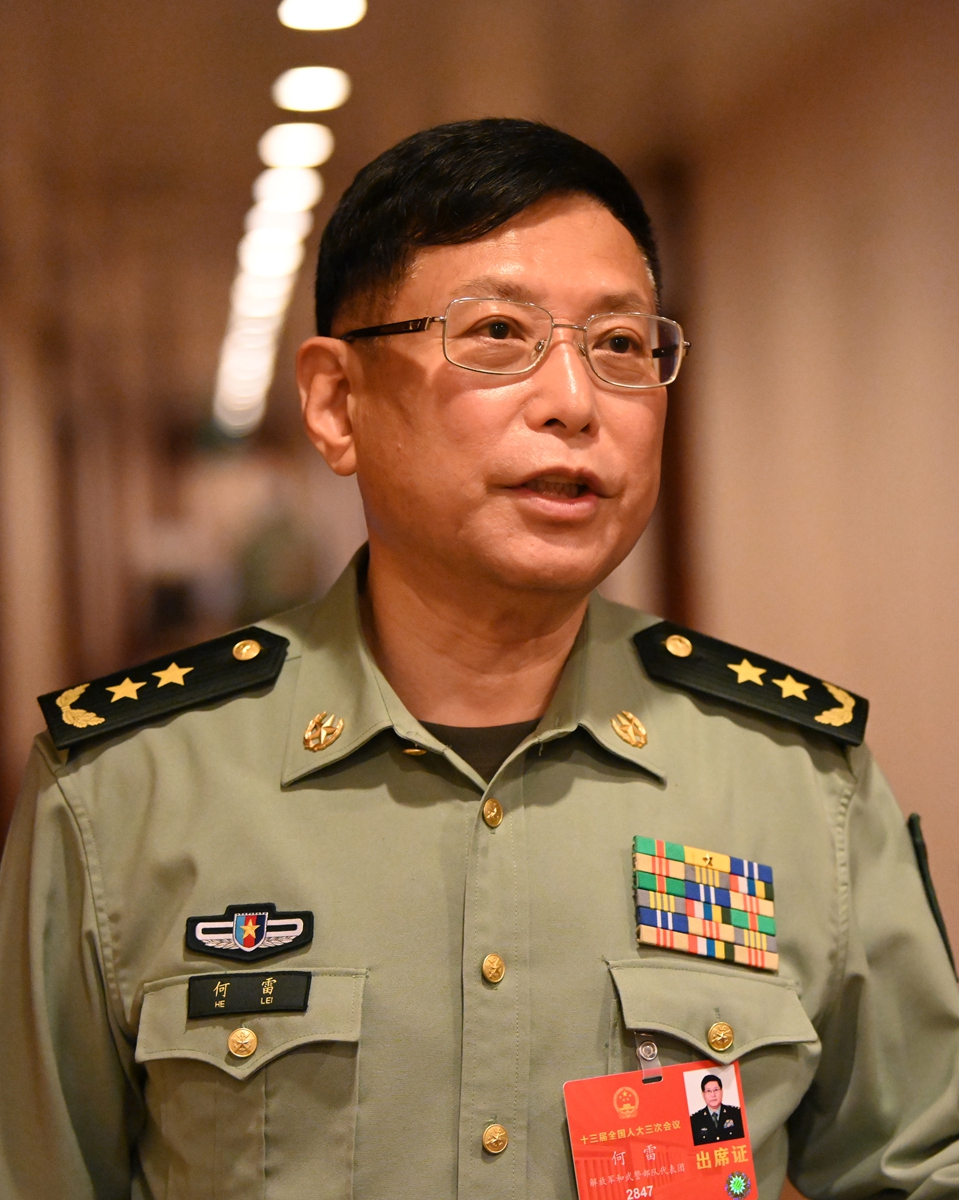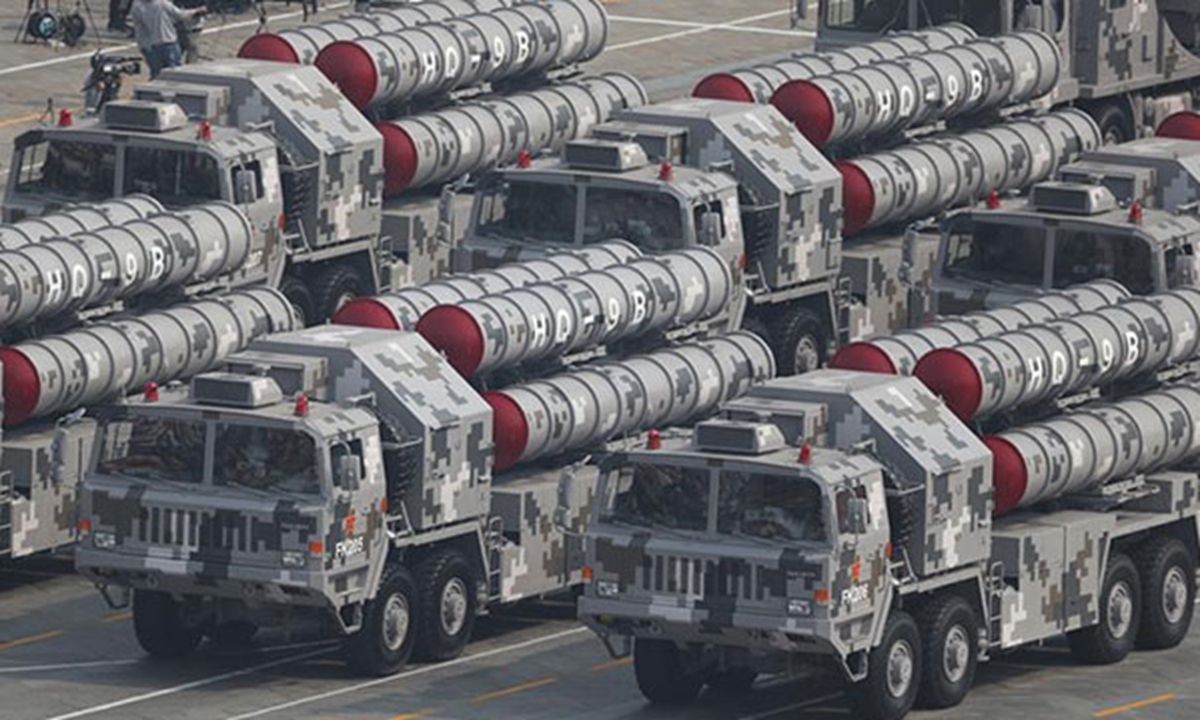China’s defense expenditure is reasonable, appropriate, truthful and transparent
By He Lei Source:Global Times Published: 2020/6/29 17:33:43

Lieutenant General He Lei Photo: Courtesy of He Lei
The Chinese government's defense budget for 2020 is set at 1.268 trillion yuan ($178.2 billion), up 6.6 percent from last year. The growth is 0.9 percentage points lower than that of last year.
China is a socialist country under the leadership of the Communist Party of China and has always maintained a reasonable and appropriate scale of defense spending.
China is an independent and sovereign country. It is one of the countries with the most neighbors, the longest land border, and has the most complicated maritime security environment in the world. At present, land boundary disputes with neighboring countries have not been resolved. There are disputes with some neighboring countries over island territory and maritime delimitations. The People's Liberation Army (PLA) carries the arduous task to safeguard China's territorial sovereignty and maritime rights and interests.
China is the only permanent member of the UN Security Council that has not achieved complete national reunification. After Tsai Ing-wen's reelection as Taiwan regional leader, her attempt to split Taiwan from China was further exposed. The activities of the "Taiwan independence" secessionist forces are rampant, seriously threatening the security and stability of the Taiwan Straits and undermining the peaceful reunification of the two sides.

A formation of air defense missiles takes part in a military parade during the celebrations marking the 70th anniversary of the founding of the People's Republic of China in Beijing, capital of China on Oct 1, 2019. Photo: Xinhua
In the face of international and regional instability, terrorism, piracy and other real threats, the PLA's strategic need to safeguard the country's overseas interests has become more prominent.
These missions of safeguarding national security and the responsibility of maintaining world peace set high requirements for the modernization of the PLA. As such, they also demand an increase of national defense spending.
China's defense spending is solely for the sake of national defense security and military building, safeguarding national security, sovereignty and development interests, and at the same time for the sake of regional and world peace.
Since 1998, the Chinese government has published regular and periodic white papers on national defense to introduce the scope, main purpose and proportion of national defense expenditure to both domestic and foreign audience. Since 2007, China has participated in the UN Military Budget Transparency Mechanism and submitted to the UN every year basic data on its defense expenditure from the previous fiscal year. There is no such thing as an "invisible military expenditure", and there is no need for "invisible military expenditure." The accusations that China's defense spending is "opaque" and "untrue" are pure malicious hype and groundless.
China has been the world's second-largest defense spender. However, it should be noted that even so, China's total defense expenditure, namely absolute number, is less than a quarter of that of the US, which ranks first in the world.
As a peace-loving and peace-preserving socialist country, China has always adhered to the path of peaceful development and pursued an independent foreign policy. These basic principles have been enshrined in the Chinese constitution. China adheres to a national defense policy that is defensive in nature and a military strategy of active defense, which has become an unswerving and long-term basic state policy. China will never seek hegemony, expansion, an arms race, the establishment of spheres of influence or threaten any country, no matter how much it spends on national defense and how much it modernizes national defense and the armed forces. This is China's solemn commitment to the world.
Facts speak louder than words. In the more than 70 years since the founding of the People's Republic of China, China has enjoyed vigorous economic development, consolidated national defense and enhanced military strength. Yet it has not invaded or occupied an inch of land of any other country. There have been a few border and maritime skirmishes with certain neighboring countries. But these were done in self-defense as China was forced to defend its territorial sovereignty, maritime interests and people's lives and property.
On the whole, China is committed to peaceful settlement of territorial and maritime delimitation disputes. So far, China has settled boundary issues with 12 of its 14 land neighbors and reached important consensus with relevant countries on maritime delimitation.
China is a major contributor of troops and the second-largest contributor of funds to UN peacekeeping operations. Since 1990, when China first sent military observers abroad, it has deployed more than 40,000 peacekeepers in the past 30 years. They have participated in 25 peacekeeping operations, and 13 of them have died on the frontline. At present, there are still more than 2,500 troops serving in the seven UN mission areas and UN peacekeeping operations.
The author is a deputy of the 13th National People's Congress and former vice president of the Academy of Military Sciences, People's Liberation Army. opinion@globaltimes.com.cn
Posted in: ASIAN REVIEW